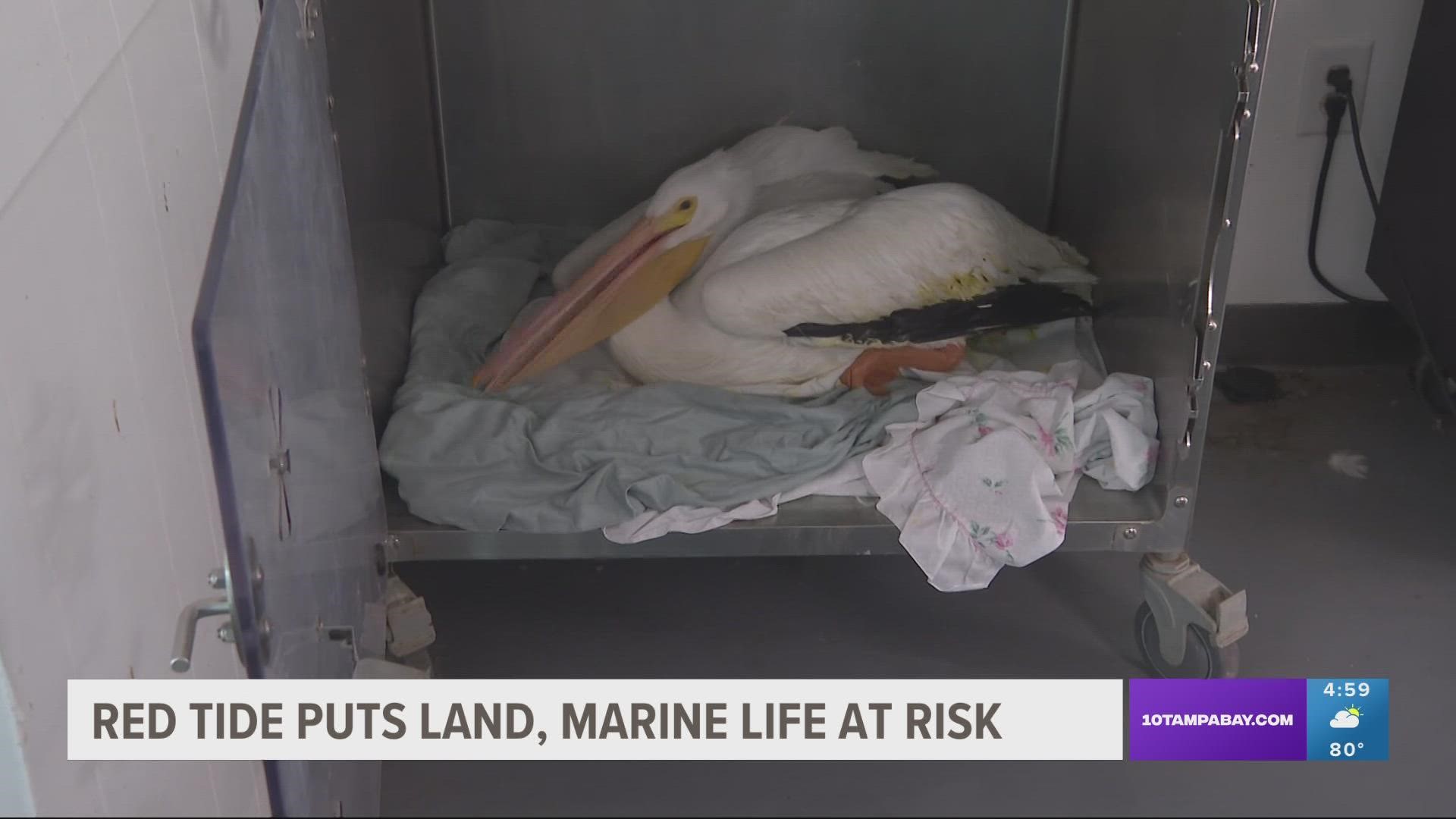VENICE, Fla. — When red tide appears in Tampa Bay, so do calls for sick or injured animals. The Wildlife Center of Southwest Florida is located in Venice. During mild years of red tide, they're still treating 100-200 birds for red tide exposure.
According to the Florida Fish and Wildlife Conservation Commission's red tide sample map, Venice beaches recently tested with high levels of red tide. Earlier this week, thousands of dead fish covered the beaches of Siesta Beach and areas of Venice.
Unfortunately for the birds — at least 10 of them are being treated at the center right now — they don't realize their lunch could kill them.
"The birds eat the fish and they get exposed to it," said Pamela Defouw, the executive director of Wildlife Center of Southwest Florida. "And then it seems to affect the larger birds first because they're out to sea eating the fish and then they'll trickle in."
When exposure is severe enough, the birds can barely stand, let alone fly, on their own.
"We'll start to get phone calls, that birds are on the beach, wobbling, they're kind of staggering, having a drunk appearance," Defouw said.
How does this happen? When red tide algae blooms are present, fish eating the algae or surrounded by the toxic water will die. Those fish are often consumed by birds in the water or along the beaches.
And it's not just birds at risk. Red tide can also kill manatees, sea turtles, and dolphins.
"It really is a neurotoxin," said Gretchen Lovewell, the program manager for Mote Marine Lab. "They will be uncoordinated and they're swimming, they sometimes they will barrel roll — it's almost like they can't figure out which direction is up so that they often won't make it to the surface to breathe."
Mote Marine Lab has already gotten calls of dead animals.
"We have, we've recovered over the last couple of weeks," Lovewell said. "Three sea turtles that we are suspicious of."
In some cases, red tide exposure is obvious when necropsies are conducted.
"When we open them up, you can sometimes even smell the red tide inside of them," Lovewell said.
If you see animals acting unusual, not reporting it can be fatal.
"Unfortunately, if left untreated, most of those birds will die," Defouw said.
For the animals beneath the surface, most times it's recovery, not rescue.
"These toxins affect these animals pretty quickly," Lovewell said. "So it's really, it becomes pretty urgent. So, unfortunately, a lot of times, it's really a carcass recovery effort."
If you see a land or sea animal looking sick or hurt, wildlife and sea life experts urge you to call it in. They'll walk you through what to do and how to best help the animal in need. For birds, wildlife refuges may walk you through how to capture the animal and bring them in. Volunteers are also dispatched to help as needed.
If you find a dead, sick, or injured manatee or sea turtle, or you would like to report a wildlife law violation, people are asked to call FWC's 24-hour Wildlife Alert Number at 888-404-3922.
For details on how to become a volunteer at the Wildlife Center of Southwest Florida, click here. For details on how to become a volunteer at Mote Marine Lab, click here.
Malique Rankin is a general assignment reporter with 10 Tampa Bay. You can email her story ideas at mrankin@10tampabay.com and follow her Facebook, Twitter, and Instagram pages.

